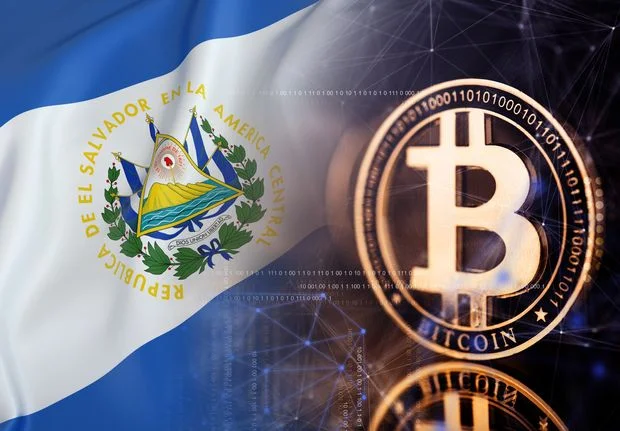Salvadorians have taken to protest against the Bitcoin law. They claimed the cryptocurrency was too volatile and even compared it to a lottery.

Protesters known as the Popular Resistance and Rebellion Block have spoken out against the government of El Salvador enacting a bill making Bitcoin legal tender.
El Salvadorian’s wave posters declaring “no to Bitcoin” on the streets of San Salvador, according to a Tuesday tweet from local news outlet El Mundo, calling for the country’s Bitcoin law to be repealed.
After first seeing the demonstrators separated by a razor-wire fence, legislative assembly members Anabel Belloso and Dina Argueta addressed them.
RT @SusanaPenate: Miembros del Bloque de Resistencia y Rebeldía Popular llegaron a presentar una propuesta de derogar la Ley Bitcoin. Salen a recibirlos Dina Argueta y Anabel Bellosopic.twitter.com/CXFLDW4tsr
— Diario El Mundo (@ElMundoSV) July 20, 2021
The Popular Resistance and Rebellion Block organization said in a letter distributed at the rally that President Nayib Bukele passed the law making cryptocurrencies legal tender in the country without sufficient consultation with the people.
It also mentioned Bitcoin’s (BTC) volatility, comparing it to playing the lottery: “betting on the lottery is a choice act, whereas Bitcoin is compelled by law.”
However, the group’s major complaint about the Bitcoin legal framework appeared to be based on a perceived inequality in the government’s use of the cryptocurrency compared to the typical El Salvadorian.
Bitcoin “only serves some rich businesses, notably those related to the government, to launder ill-gotten money,” according to protesters.
“Entrepreneurs who invest their money in Bitcoin will not have to pay taxes on their profits,” the letter stated. “In addition, the government will invest millions of dollars in taxpayer money to implement Bitcoin.”
They also stated:
“Bitcoin would facilitate public corruption and the operations of drug, arms and human traffickers, extortionists and tax evaders. It would also cause monetary chaos. It would hit people’s salaries, pensions and savings, ruin many MSMEs, affect low-income families and hit the middle class.”
The law recognizing Bitcoin as legal currency in El Salvador was passed by the government and signed into law by Bukele in June, but it will not take effect until September 7.
The rally was organized by the Popular Resistance and Rebellion Block, who demanded that the law be repealed. Furthermore, due to El Salvador’s “environmental and transparency issues,” the World Bank has declined to assist the country in transitioning to a Bitcoin-friendly framework.
During a scheduled visit by the United States of America, Under Secretary of State for Political Affairs Victoria Nuland advised earlier this month that El Salvador guarantee Bitcoin is highly regulated and transparent, but she did not expressly oppose the country’s drive to a more digital economy.
Bitcoin, according to some proponents of the measure, might assist simplify remittance payments from El Salvador citizens residing abroad and reduce the country’s dependency on the US dollar.
